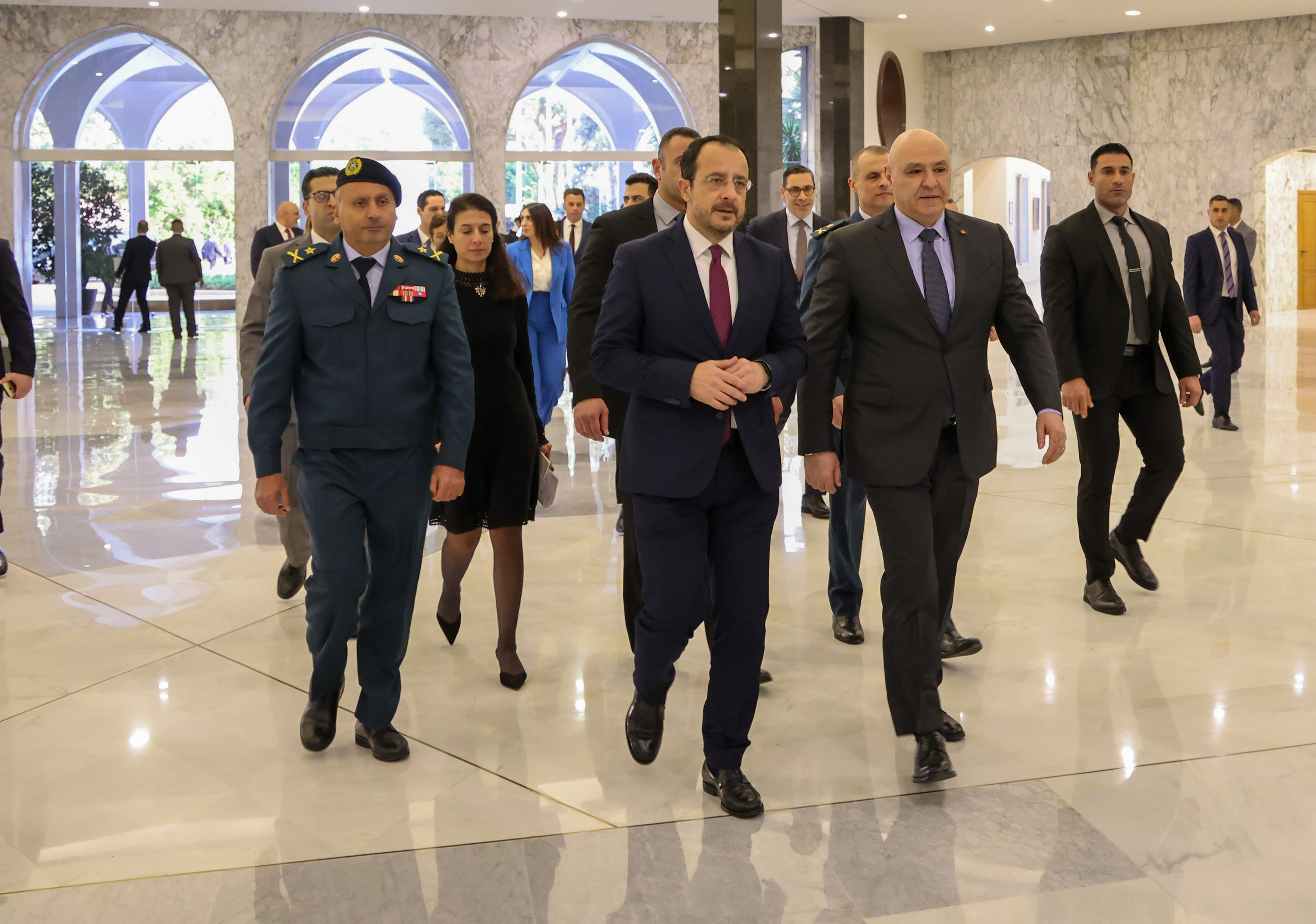The European Union must “actively and systematically support” Lebanon’s new President Joseph Aoun, Cypriot President Nikos Christodoulides said on Friday.
Christodoulides was the first foreign leader to meet Aoun following his election as president on Thursday, and said the EU must use “all the available means in its toolbox” to support him.
“This is essential for the stability and prosperity of Lebanon, but also of the wider region,” he said.
To this end, he highlighted the role Cyprus can play as an EU member state, expressing his will to “further strengthen cooperation at all levels” while “also taking advantages of the opportunities offered by Cyprus’ membership of the EU”.
He also expressed his “firm support for Lebanon’s efforts to strengthen its stability and economic recovery”.
Later in the day, Cypriot government spokesman Konstantinos Letymbiotis said the meeting was of “exceptional substantive and symbolic importance”.
“It confirmed the close and historical bonds of friendship which connect the two countries and at the same time constituted an opportunity for an exchange of views on issues of common interest, both at a regional and international level,” he said.
He added that both Christodoulides and Aoun had “agreed to keep their communication channels open” and to “proceed with specific actions which will further strengthen relations between Cyprus and Lebanon, as well as the European Union”.
This, he said, will “consolidate the sense of security and stability in the eastern Mediterranean”.
Before the meeting, Christodoulides had pointed out that he knows Aoun “very well”, given that he is the commander-in-chief of the Lebanese armed forces – a role he has held since 2017.
He also emphasised the importance of the fact that Cyprus is “the EU member state in the region”, and that the country has “excellent relations with all neighbouring countries”.
The visit to Lebanon is the latest in a series of meetings Christodoulides has held with regional heads of state and government in recent days.
On Thursday, Israeli President Isaac Herzog made an impromptu visit to Nicosia, and Christodoulides held a tripartite meeting with Egyptian President Abdel Fattah al-Sisi and Greek Prime Minister Kyriakos Mitsotakis in Cairo on Wednesday.
Asked about the series of meetings, he said the main topic of discussion was “regional developments”, adding that “there rare some developments that some are trying to exploit to the detriment of other states in the region”.
He added that all other states in the region are joining forces to address these challenges, “so that no one can exploit the state of affairs to promote their own agenda”.
“We are a region of particular geostrategic importance and all states with a common approach come together so that we can send the right messages and through specific action to avert anything that is against the creation of conditions of security and stability,” he said.
These statements come amid fears in Nicosia that Turkey and the new Syrian government may delineate their exclusive economic zones (EEZ) without consulting Cyprus and thus encroach on the Republic of Cyprus’ claim.
Were this to happen, it would mirror an agreement signed between Turkey and Libya’s government of national accord in 2019, which encroached on Greece’s claim and was described by the Republic of Cyprus at the time as “illegal”.
The fears arose after Turkish Transport Minister Abdulkadir Uraloglu in December made reference to such plans in mid-December, though he walked his statements back on Christmas Eve, saying any such agreement would “take into account international law”.
The country’s Foreign Minister Hakan Fidan made no mention of Syria’s EEZ in a year-reviewing speech on Friday, instead choosing to focus on the People’s Defence Units (YPG) and its affiliated political party the Kurdistan Workers’ Party (PKK), saying his country has the “capacity, power, and determination” to “eliminate all threats to its existence”.
While Turkey may be publicly backing away from the idea of a fresh EEZ delineation with Syria, the Republic of Cyprus has remained focused on the issue.
Letymbiotis even criticised the EU for what he perceived as inaction on the matter in December, saying the bloc’s “reflexes are not what we would expect”.
Earlier, government spokesman Konstantinos Letymbiotis said the election of a new president is considered to be “particularly positive for Lebanon, as it is attempting to heal the wounds of political uncertainty.
He added that the government has suggested that the EU have a “more active, more leading involvement in the region”, and said this is “precisely because we believe that its practical support for the states of the region can respond to this gap which may have been created in recent years”.
To this end, he was keen to issue a reminder that “any violation of Cyprus’ territorial integrity is a violation of European Union territory”.






Click here to change your cookie preferences